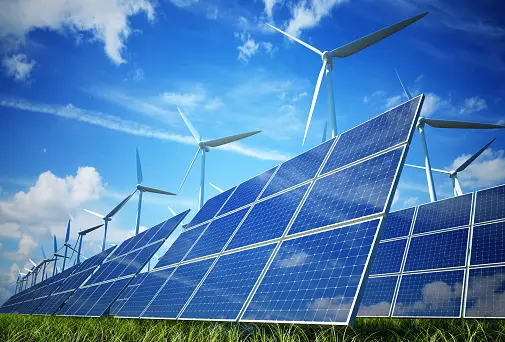In the quest for sustainable and eco-friendly power solutions, solar generators have emerged as a promising alternative to traditional fossil fuel-based generators. Solargenerators harness the abundant energy from the sun and convert it into electricity, offering a clean and renewable source of power. As the world becomes more conscious of its carbon footprint and the need for sustainable energy solutions, solar generators have gained popularity across various sectors. This article explores the concept of solar generators, their working principles, applications, benefits, and their role in shaping a greener and more sustainable future.
Understanding Solar Generators
What is a Solar Generator?
A solar generator is a self-contained system that uses photovoltaic (PV) panels to convert sunlight into electrical energy. It consists of solar panels, an inverter, a charge controller, and battery storage. The solar panels capture sunlight and convert it into direct current (DC) electricity. Which is then converted into alternating current (AC) by the inverter for use with standard electrical appliances.
How Does a Solar Generator Work?
Solar generators work on the principle of the photovoltaic effect. When sunlight hits the solar panels, the photons in the sunlight knock electrons loose from atoms in the semiconductor material of the panels, generating an electric current. This electricity is then stored in batteries, ready for use during times when sunlight is not available.
Components of a Solar Generator
Solar Panels
Solar panels, also known as PV panels, are the primary components responsible for capturing sunlight and converting it into electricity. They are made of semiconductor materials, such as silicon, and consist of multiple photovoltaic cells that generate DC electricity.
Inverter
The inverter is a crucial component that converts the DC electricity produced by the solar panels into AC electricity. Which is suitable for powering household and commercial appliances.
Charge Controller
The charge controller regulates the flow of electricity from the solar panels to the batteries. It ensures that the batteries are not overcharged during peak sunlight and protects them from damage.
Battery Storage
Batteries store the excess electricity generated by the solar panels for later use. They provide a steady power supply even when there is no sunlight, such as during the night or on cloudy days.
Applications of Solar Generators
Off-Grid Power Supply
One of the significant applications of solar generators is in off-grid areas where access to traditional power grids is limited or unavailable. Remote locations, campsites, and cabins can benefit from solar generators, offering a reliable source of electricity without the need for fuel or extensive infrastructure.
Emergency Backup
Power Solar generators serve as excellent emergency backup power sources during power outages caused by natural disasters or grid failures. They provide a lifeline for essential devices and appliances, ensuring communication, lighting, and basic electrical needs are met during emergencies.
Mobile Power Solutions
Portable solar generators have become popular for outdoor enthusiasts, campers, and hikers. These compact and lightweight generators can power electronic devices, refrigerators, lighting, and more, making them ideal for adventures off the grid.
Residential and Commercial Power Generation
Solar generators are also employed in residential and commercial settings as an environmentally friendly alternative to traditional generators. By harnessing solar energy, homeowners and businesses can reduce their dependence on grid electricity and lower their carbon footprint.
Also read about: Unblocked games 76
Advantages of Solar Generators
Renewable and Clean Energy Source
The primary advantage of solar generators is their reliance on renewable energy from the sun. Solar power is inexhaustible and does not produce harmful emissions, making it an environmentally friendly choice.
Reduced Energy Costs
Solar generators allow users to generate their electricity, leading to significant cost savings over time. While the initial setup cost may be higher, the long-term savings in energy bills make it a worthwhile investment.
Low Maintenance
Solar generators have fewer moving parts compared to traditional generators. Resulting in reduced maintenance requirements and fewer chances of mechanical failure.
Quiet Operation
Unlike conventional generators that produce noise during operation, solar generators operate silently, making them suitable for noise-sensitive environments.
Energy Independence
By using solar generators, individuals and communities can become less reliant on centralized power grids, promoting energy independence and resilience.
Conclusion
Solar generators have emerged as a sustainable and reliable solution for power generation. With their renewable nature, reduced environmental impact, and versatile applications. They play a crucial role in the transition towards a greener and more sustainable future. As technology advances and awareness about the importance of renewable energy grows, solar generators are expected to become even more efficient and accessible. Further accelerating the global shift towards clean energy adoption. By embracing solar generators, we can harness the power of the sun and contribute to a cleaner and more sustainable planet.
You may also like
-
Enhancing Customer Engagement: Innovative Applications of Clarity Voice’s Communication Solutions
-
Solar Energy Solutions: A Sustainable Step Toward Long-Term Growth
-
AI Story Generator Free: A Smarter Way to Spark Creativity
-
Modern Technologies in 2025: AI and Innovative Solutions
-
Mastering Odoo Implementation for Business Success

